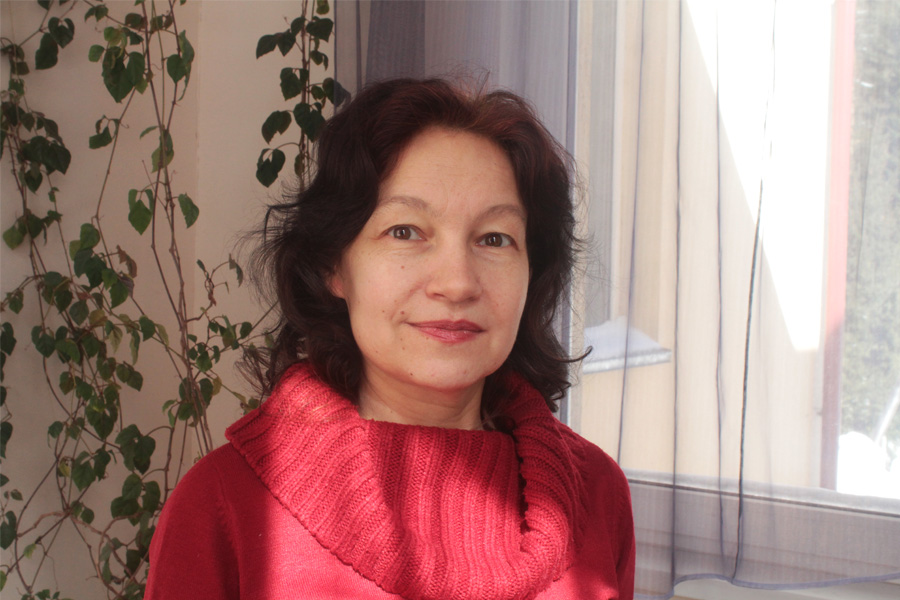‘Our city had never been more beautiful than on the day before the war’, Agnia Bohun, a Kharkiv resident

My name is Agnia Bohun. I am a Ukrainian author residing in Kharkiv. The war in Ukraine has become a complete surprise to me. The threat had been around long ago, at the border, which is just 30 kilometres away. The build-up of the formidable army with hostile intentions had already been carried out. We packed our go bags. I even purchased 2 bags of flour and a tin of fish, knowing that anything could be expected from our insane neighbours. But the explosions on 24 February at 4am staggered us all. ‘Is that really a war?’, we asked each other, lying petrified in our beds. Our city had never been more beautiful and spick-and-span than on the day before the war. The renewed parks, gorgeous shops, a new zoo, modern institutes and technological enterprises, smart buildings of the old city centre. It used to be a European city, and over a few days of the war, all that, which is our pride and beauty, has been ruined ruthlessly. Out of 5,000 tower blocks of Saltivka residential development, 400 are not subject to restoration.
We, ordinary residents, have gradually begun to realise that this nightmare is for real. We have been changing our habits, trying to get used to such a freaking reality. We put some sticky tape on our windows, dressed them with curtains, tried to find much or less safe places in our flats.
The people ran out of bread really fast. Most of the shops remained closed. My elderly father once asked some passers-by where to pick up any bread, and one stranger took a white loaf out of his shirt, broke an end piece of it and said, ‘Here you go, sir’. My elderly father was touched. When a boy, he had survived World War II in occupied Kharkiv. He thanked the stranger and invited him to his place if he ever needed any shelter.
Our neighbours, always tied up and unprone to communicate in peacetime, have stunned us with their consideration and readiness to help us in extreme situations. They have provided my elderly parents with bread and food from humanitarian aid. They have also shared their canned food and medicine with them. They have even invited my parents to their cellar, suggesting it as a bomb shelter. Those who have moved out of the city have let others into their homes if they have lost theirs.
Having lots of friends of mine in different districts, I have always been in touch with them and have learnt about the city devastation and losses at first hand. We have been tracking time not in accordance with the calendar, but with the first day of the war and the most outrageous destructions: the bombardment of the Oblast Council building, the following day — the bombardment of the Palace of Labour and Town Hall. Those incidents have taken our breath away. We have witnessed the main symbols of our city and country dying. Such horrendous attacks have even aroused the indignation and hatred for the invaders among the ‘Russian World’ devotees. The citizens have united against our common disaster.
My daughter and I once waited out another air-raid in the corridor, leaning on the wall as much as we could. I tried to calm her down and cover her up. That was like in a horror movie. The lights were out around. We only had a small light bulb, built in our gas cooker, on. We put sticky tape on our windows to protect ourselves from shattered glass. We thoroughly plugged all the slits we could see on our curtains. Our residential development, Osnova, dived deep into the darkness and seemed empty.
Everything that people have been collecting their whole life, all their welfare and typical life, has started to collapse. But the main thing is to save the people, save our freedom and identity. In my texts, I have always been fighting against coercion, totalitarianism and cruelty. For both me and my family, it is absolutely unacceptable to return to the worst model of the soviet past, where people become broken and unified, getting their wings clipped; where all their creation gets killed; where people are forced to bootlicking and betrayal; where their mindset gets crooked from birth to old age.
I have always been writing texts like breathing. I have always tended towards reflection and philosophical generalisation. But my creative work has stopped due to the humanitarian catastrophe in Ukraine, which has been caused by the Russian invasion. I have started to behave like the well-known ‘Gone with the Wind’ female character, saying to myself, ‘I’ll think about that tomorrow’. Now staying in hospitable surroundings of ‘Caritas-Spes’, the lump in my chest has gone down and I have written my first poem about all I have been through.
The ‘Caritas-Spes Ukraine’ Mission has provided 19,196 people with shelter since the beginning of the Russian invasion. Our assistance continues. Help us help others.

